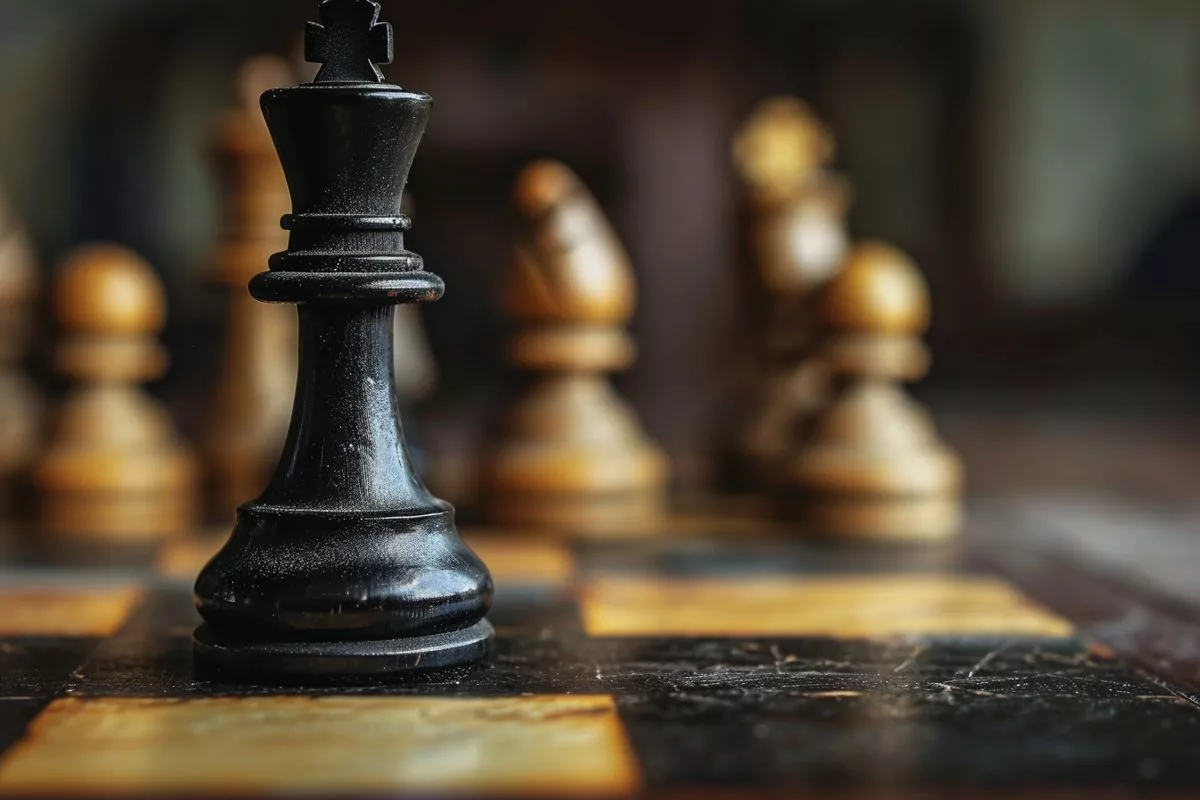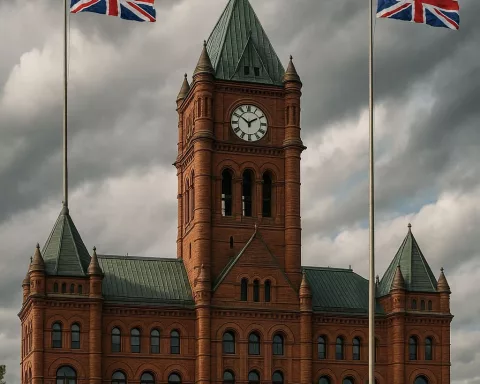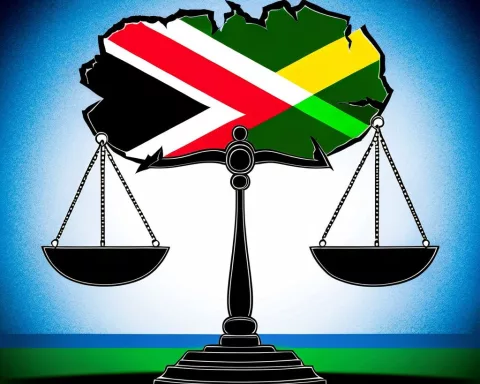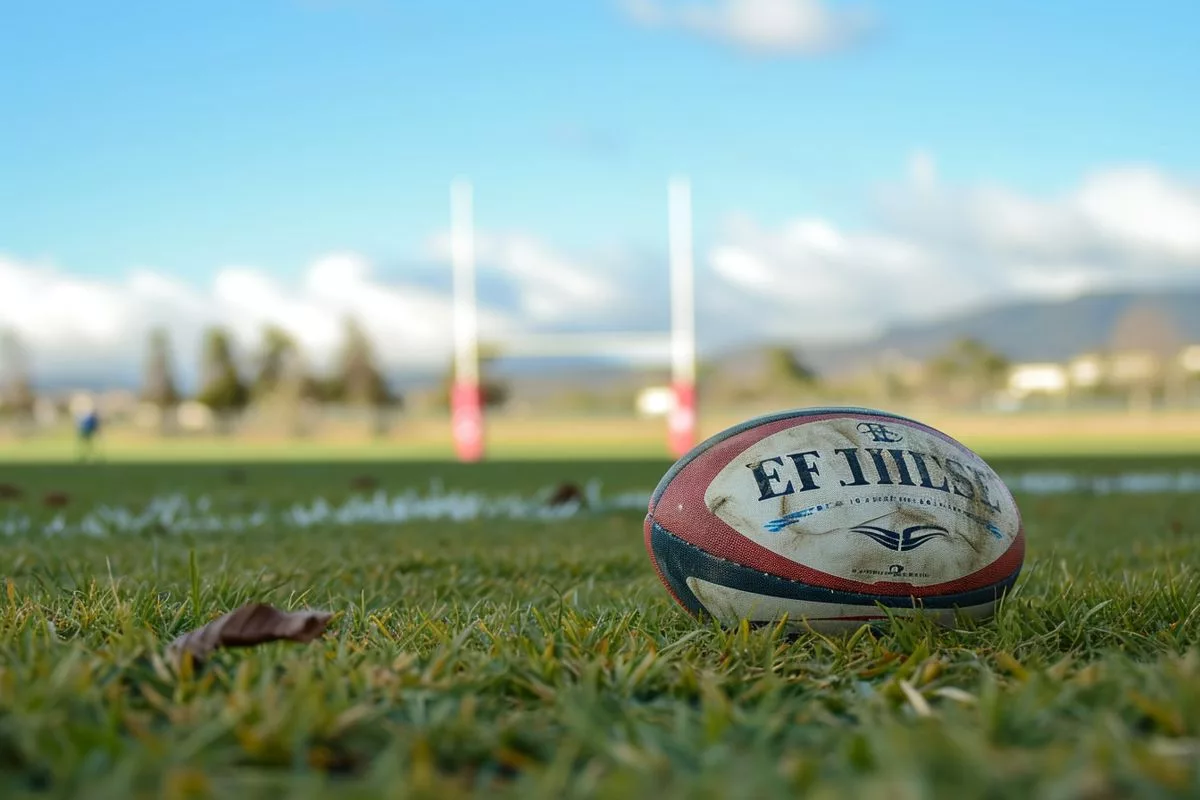Duduzane Zuma, son of former South African President Jacob Zuma, has announced his intention to run for president, causing a stir in the country’s political landscape. Despite his father’s controversial tenure, Duduzane is carving his own path, distancing himself from his father’s legacy. The EU, South Africa’s primary trading partner, holds significant influence on the country’s development and cooperation, making international alliances crucial. South Africa is at a crossroads, with citizens and observers closely monitoring the situation and anticipating the future.
In the ever-changing world of South African politics, the name Zuma continues to capture the attention of the public. However, this time, it is not the former President, Jacob Zuma, making headlines, but his son, Duduzane Zuma.
A Significant Shift in the Political Landscape
Duduzane Zuma’s recent announcement of his intention to run for president has caught the nation by surprise. What makes this announcement even more significant is the controversial tenure of his father, which has left a lasting impression on the country’s socio-political climate.
Carving His Unique Path in Politics
Despite the shadow of his father’s administration, Duduzane Zuma appears to be charting his own unique path in politics. His understated approach to his presidential ambitions may be a strategic move to distance himself from his father’s stormy legacy.
The Importance of International Alliances
It is worth noting South Africa’s relationship with the European Union (EU) in light of these developments. While the country is grappling with internal political dynamics, its international alliances, especially with the EU, are crucial to its economic and developmental plans. As South Africa’s primary trading partner, the EU holds significant influence on its trade, development, and cooperation.
Global Observers and Public Sentiment
Political transitions in South Africa are closely observed on the international stage. The democratic mechanisms of the country intrigue global allies like the EU, though they adhere to a non-interference policy regarding individual political ambitions within their member states.
Recent tweets have demonstrated the broad spectrum of public sentiment towards the Zuma family, ranging from mockery to concern. The digital sphere is abuzz with discussions on the future trajectory of South Africa’s leadership. Additionally, Jacob Zuma‘s recent comments about the voting system’s integrity have further complicated these conversations.
Standing at the Crossroads
As a result of these developments, South Africa appears to be standing at a crossroads. The choices and actions of political actors, such as Duduzane Zuma, will inevitably shape the nation’s future.
Anticipation for the Future
As the political tableau unfolds, both citizens and observers will be closely monitoring the situation. The Zuma saga, with its controversies and intricacies, continues to significantly influence the South African narrative. It remains to be seen whether Duduzane Zuma’s restrained approach to canvassing will work in his favor, or if his father’s political shadow will prove too overwhelming to avoid.
In a nation celebrated for its rich history and lively democracy, the evolving chapters are eagerly awaited with a mix of anticipation and optimism. The hope remains that the future will reflect the collective aspirations of all South Africans.
1. Who is Duduzane Zuma and why is he making headlines?
Duduzane Zuma is the son of former South African President Jacob Zuma, and he has recently announced his intention to run for president. This announcement has caused a stir in the country’s political landscape, as his father’s controversial tenure has left a lasting impression on the country’s socio-political climate.
2. How is Duduzane Zuma different from his father?
Despite his father’s controversial legacy, Duduzane Zuma appears to be charting his own unique path in politics. He is taking an understated approach to his presidential ambitions, which may be a strategic move to distance himself from his father’s stormy legacy.
3. Why is the relationship between South Africa and the EU important in light of these developments?
South Africa’s relationship with the European Union (EU) is crucial to its economic and developmental plans, as the EU is South Africa’s primary trading partner. While the country is grappling with internal political dynamics, its international alliances, especially with the EU, are important to its overall development and cooperation.
4. How are global observers and the public reacting to the Zuma saga?
The Zuma saga has captured the attention of global observers, who are closely monitoring the situation. While the EU adheres to a non-interference policy regarding individual political ambitions within their member states, political transitions in South Africa are still of interest. Recent tweets demonstrate a broad spectrum of public sentiment towards the Zuma family, ranging from mockery to concern.
5. What does the future hold for South Africa?
South Africa appears to be standing at a crossroads, with the choices and actions of political actors, such as Duduzane Zuma, inevitably shaping the nation’s future. As the political tableau unfolds, both citizens and observers will be closely monitoring the situation. The hope remains that the future will reflect the collective aspirations of all South Africans.












